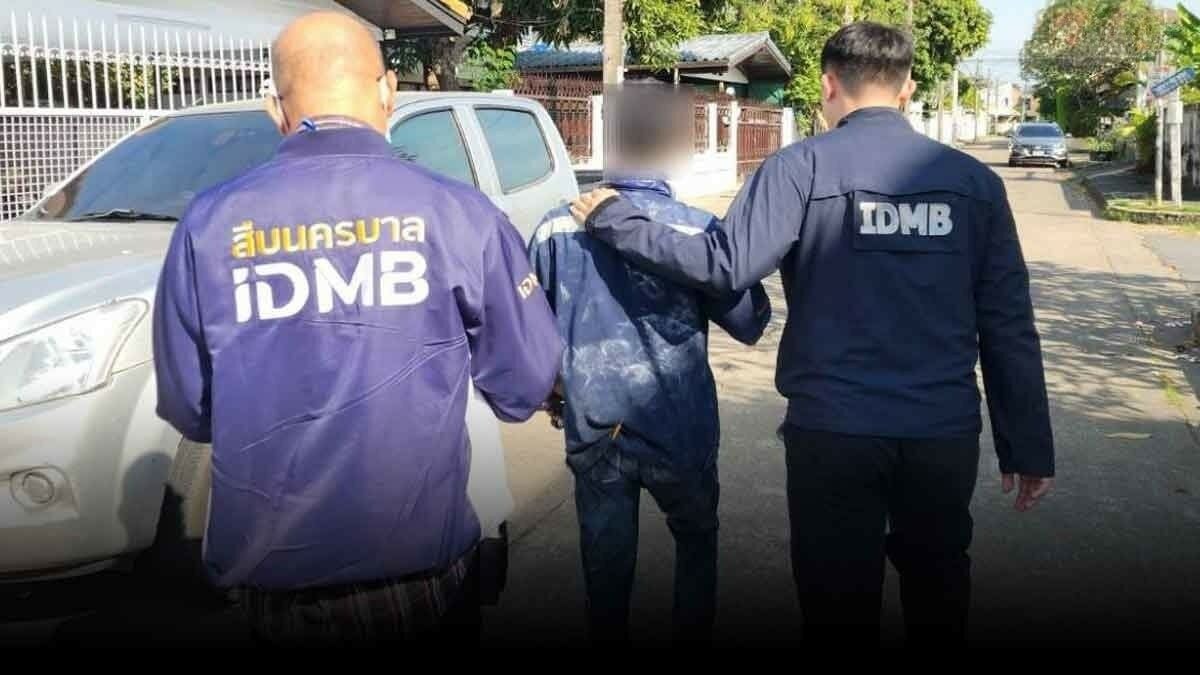Thai police arrest suspect in 70,000 baht missing person scam

Thai police apprehended a suspect involved in a fraud scheme, where victims were deceived into transferring money under the guise of helping locate missing persons. The scam resulted in both the disappearance of vehicles and the individuals themselves.
Police officers, including Siam Boonsom, Wasan Thechakrakasem, Noppasilp Phulsawat, and Teeradej Thammasuthee, ordered the arrest of 27 year old Thinapat yesterday, December 11. He was apprehended under the Thanyaburi court warrant number 765/2567, issued on September 25. Thinapat faced charges of introducing distorted or false data into a computer system.
The case began in July last year when a victim posted on Facebook seeking help to find a missing person. An unknown individual contacted the victim, claiming to have information on the missing person’s whereabouts.
They stated that the person had left two cars with them and demanded 70,000 baht for their return along with the missing person. The victim was instructed to transfer the money to a bank account under Thinapat’s name.
Trusting the scammer, the victim transferred the full amount in two transactions: 40,000 baht followed by 30,000 baht. After the money was sent, the victim could no longer contact the fraudster, leading them to report the incident to the police.
The investigation team discovered on Tuesday, December 10 at 2.20pm that the suspect was an electrician working on building projects nationwide. The police tracked him down and arrested him.
During the arrest, Thinapat denied all allegations. The police documented the arrest and transferred him to Khlong Luang Police Station for further legal proceedings, reported KhaoSod.
Teeradej Thammasuthee warned the public about the increasing number of scams, especially online, where scammers exploit victims financially. He advised caution when answering calls, reading messages, or contacting unfamiliar individuals.
“It’s crucial to verify information directly with relevant authorities, avoid sharing personal information, and refrain from clicking unfamiliar links sent via messaging apps or SMS. If anyone requests a financial transaction, it should be a red flag.”
Victims of scams are encouraged not to feel ashamed and to report incidents immediately by contacting the hotline number 1441.
Frequently Asked Questions
Here are some common questions asked about this news.
Why do fraudsters often target vulnerable individuals through online platforms?
Online platforms offer anonymity and wide reach, making it easier for fraudsters to exploit individuals seeking help or information.
How can individuals protect themselves from scams like the one in Thailand?
By verifying information with the police, avoiding sharing personal data, and being cautious about financial transactions with unfamiliar contacts.
What if more people were educated about identifying scams—how might fraud rates change?
Increased education could lead to a decline in victimisation rates, as more individuals could recognise and avoid scams.
How do scams impact the victims emotionally and financially in the long term?
Victims may experience financial loss, trust issues, and emotional distress, affecting their long-term well-being and confidence in online interactions.
What motivates scammers to continue their fraudulent activities despite legal risks?
The potential for substantial financial gain and the perception of low risk due to anonymity often motivate scammers to persist.
Latest Thailand News
Follow The Thaiger on Google News:


























